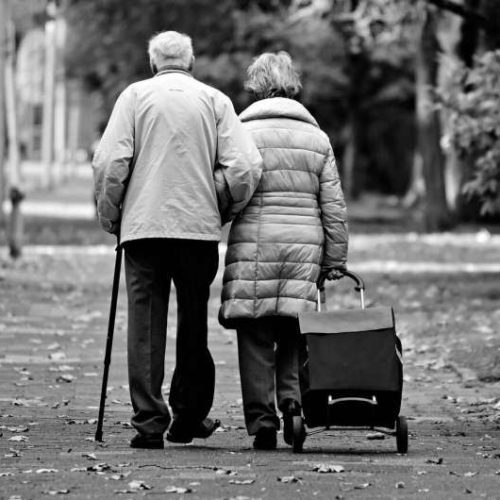EDITH COWAN UNIVERSITY It’s generally accepted we will lose muscle strength and slow down as we age, making it more difficult to perform simple tasks such as getting up, walking and sitting down. But new Edith Cowan University (ECU) research indicates this could also be a signal for another sinister health concern of ageing: late-life dementia. To...
Tag: <span>Old age</span>
Seven hours of sleep is optimal in middle and old age, say, researchers
Sleep plays an important role in enabling cognitive function and maintaining good psychological health. It also helps keep the brain healthy by removing waste products. As we get older, we often see alterations in our sleep patterns, including difficulty falling asleep and staying asleep and decreased quantity and quality of sleep. It is thought that these...
20 mins of daily exercise at 70 may best stave off major heart disease in late old age
BMJ Twenty minutes of daily moderate to vigorous exercise in early old age (70-75) may best stave off major heart disease, including heart failure, in late old age (80+), suggests research published online in the journal Heart. The findings reinforce the maxim of ‘better late than never,’ when it comes to exercise, but earlier on in...
New research identifies biological causes of muscle weakness in later life
by University of Exeter Credit: CC0 Public Domain A new largescale genetic analysis has found biological mechanisms that contribute to making people more susceptible to muscle weakness in later life, finding that diseases such as osteoarthritis and diabetes may play a large role in susceptibility. As we get older we lose muscle strength, and in some people...
Vicious circle leads to loss of brain cells in old age
Researchers at the University of Bonn determine how dangerous inflammations in the brain are caused UNIVERSITY OF BONN The so-called CB1 receptor is responsible for the intoxicating effect of cannabis. However, it appears to act also as a kind of “sensor” with which neurons measure and control the activity of certain immune cells in the brain....
Dying elderly need comforting, not rescuing, according to study
UNSW medical researchers are calling for restraint on the use of aggressive life-saving treatments for frail elderly patients at the end of their lives, saying the focus should instead be placed on making patients‘ last days comfortable and dignified. In a study led by UNSW Adjunct Associate Professor Magnolia Cardona and published in the Joint Commission Journal on Quality...
Study: The eyes may have it, an early sign of Parkinson’s disease
Thinning of retina linked to loss of brain cells that control movement AMERICAN ACADEMY OF NEUROLOGY MINNEAPOLIS – The eyes may be a window to the brain for people with early Parkinson’s disease. People with the disease gradually lose brain cells that produce dopamine, a substance that helps control movement. Now a new study has...
People with dementia and financial abuse – the warning signs and how to avoid it
When most of us go online to our internet banking account and set up a direct debit to pay a bill, we probably do it swiftly without much thought. But in reality it’s not that easy. In fact, there are a lot of complex processes involved in how we manage our finances, which older people,...
Increased levels of human herpesvirus ID’d in Alzheimer’s
(HealthDay)—Subjects with Alzheimer’s disease have increased levels of two strains of human herpesvirus, according to a study published online July 11 in Neuron. Ben Readhead, M.B.B.S., from the Icahn School of Medicine at Mount Sinai in New York City, and colleagues constructed multiscale networks of the late-onset Alzheimer’s disease-associated virome, integrating genomic, transcriptomic, proteomic, and histopathological...
Can nanotechnology help treat Alzheimer’s?
June 19, 2018 by Ileana Varela, Florida International University Alzheimer’s disease (AD) is the most common form of dementia. It takes a devastating toll on patients and family members, who are usually the caregivers. Current drugs only treat symptoms of AD, not its causes. June is Alzheimer’s and Brain Awareness Month. FIU researchers are studying a new approach...
- 1
- 2

